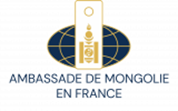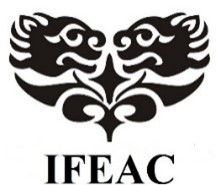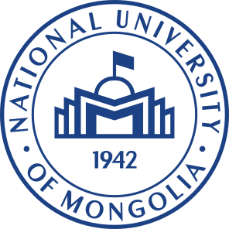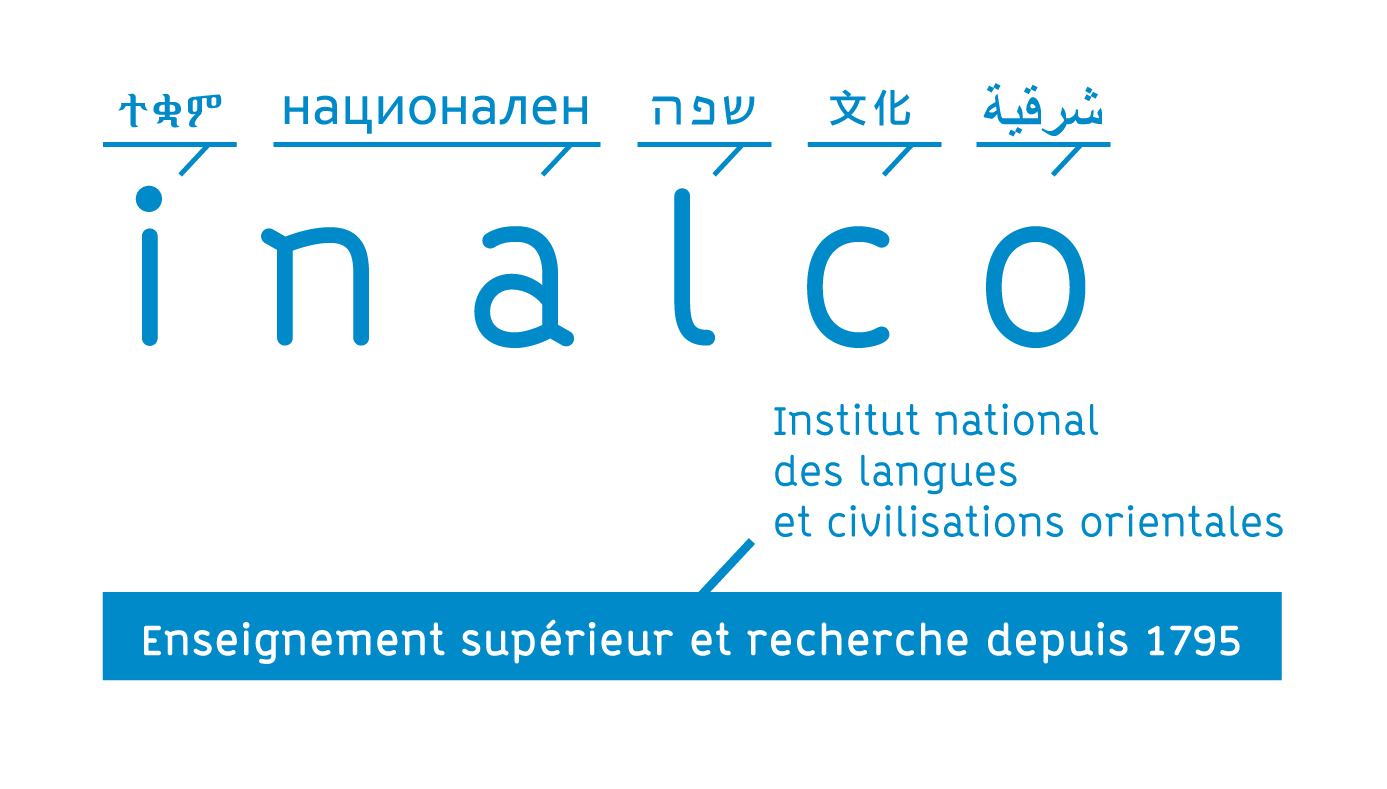Mongolian temporalities: Past, present and future in Mongolian studies
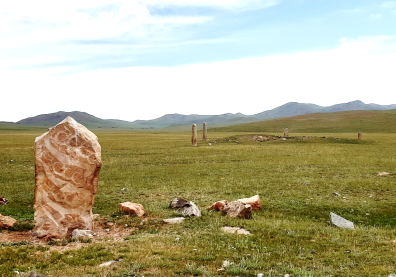
On the occasion of the sixtieth anniversary of the establishment of Franco-Mongolian relations, and with them the permanent establishment of Mongolian language teaching at Inalco, this colloquium dedicated to "Mongolian temporalities" questions both scientific approaches to the notion of temporality in the Mongolian context, and research practices, paradigms and methodologies in Mongolian studies. This theme is in line with current developments in the Anglo-Saxon and Francophone social sciences (Anthropology of Time, anthropology of futures, anticipation writing), in the light of contemporary approaches. The theme thus simultaneously invites exploration of current notions and issues, and a cross-disciplinary overview of Mongolian studies.
Jeudi 13 novembre
9h00 Welcome to participants
9:30 Introduction
Session chaired by Raphaël Blanchier and Charlotte Marchina
Word from Nyamkhuu Ulambayar, Mongolian ambassador to France
Word from Corinne Pereira, French ambassador to Mongolia (by videoconference)
Word from Marie Favereau, Director of the Institut français d'études sur l'Asie centrale (IFEAC)
Speech by Dulam Sendenjav, Professor, Mongolian University of Arts and Culture (by videoconference)
Speech by Jaques Legrand, Professor Emeritus, former president of Inalco
10:30-11:00 Break
11:00 The place of research and teaching in Franco-Mongolian diplomatic exchanges.Mongolia
Session chaired by Charlotte Marchina
French Studies and the Francophonie in Mongolia: état des lieux, enjeux et perspectives
Altangul Bolat, Professor, National University of Mongolia, Director of the AUF Ulaanbaatar Francophone Employability Center at UNM & Tsetsegbayar Bayarmagnai, PhD student, National University of Mongolia
Mongolian studies in France: past, present and future trends
Isabelle Charleux, Director of Research, CNRS, GSRL, and Charlotte Marchina, Senior Lecturer, Inalco, IFRAE, IUF
12:00-14:00 Lunch
14:00 Exhuming the past to understand the present
Session chaired by Isaline Saunier
Historical and contemporary perspectives on archaeology in Mongolia
Turbat Tsagaan, associate professor, National University of Mongolia
Spatial modeling and geovisualization of prehistoric sites in the baruun taiga, Eastern Sayan, Khövsgöl province, Mongolia
Michel Neyroud, independent researcher geographer-cartographer and filmmaker & Bayarsaikhan Jamsranjav, postdoctoral researcher, Mongolian Academy of Sciences, Max Planck Institute
At the crossroads of terrains: ethnographic observations on an archaeological excavation in the Orkhon Valley, Central Mongolia
Cecila Conte, PhD student, Freie Universität Berlin
15h30-16h00 Pause
16h00 (Re)prendre langue
Session chaired by Jacques Legrand
Le dictionnaire mongol > français: histoire et déploiement d'une collaboration de longue terme
Words from the late Roberte Hamayon, initiator of the project, and Pierre Palussière, current director of the dictionary, read by Laurent Legrain
A propos des termes " Mongol " et " Mongolie " d'après les sources et manuscrits anciens de la Bibliothèque Nationale de France
Zayabaatar Dalai, Professor, National University of Mongolia, Bulgantamir Sangidkhorloo, Associate Professor, National University of Mongolia, and Annie Rialland, Emeritus Research Director, CNRS/Sorbonne Nouvelle-Laboratoire de Phonétique et Phonologie
17:00 Literary Translations
Round-table discussion chaired by Raphaël Blanchier, with the participation of Khishig-Erdene Gonchig, Munkhzul Renchin, Bulgantamir Sangidkhorloo, Bouzhigma Santaro, Nomindari Shagdarsüren et al.
17:30-18:00 Break
18:00-20:00 Showing of ethnographic film The Sun Team: 1. The Finger Game; 2. Veterinary Care (2025, Coul., 66 min, 4/3, VO-STF) and discussion with its director Gaëlle Lacaze
Friday, November 14
<9h00 Terrains présents, objets d'avenir? (1ère partie)
Session chaired by Raphaël Blanchier
Mongolian studies today: state of the art and perspectives
Zayabaatar Dalai, Professor, National University of Mongolia, President of IAMS
Accompanying Gobi herders in their adaptation to global change: interdisciplinary and participatory approaches in the Mongolian Gobi
iEES Gobi Transversal Initiative team (UMR 7618-Sorbonne Université [SU], UPC, UPEC, CNRS, IRD, INRAE): Adrien Frant, MCF-SU, Gaëlle Lacaze, PRU-SU, Caroline Pierre (CR-CNRS) and Jean-Louis Rajot (DR-IRD)
Grazing from one season to the next in the context of environmental change. Transformation of pastoral rhythms in contemporary Mongolia
Charlotte Marchina, maîtresse de conférences, Inalco, IFRAE, IUF, and Jeanne Riaudel, doctoral student, Université Paris 1 Panthéon-Sorbonne, PRODIG (UMR 8586)
10:30-11:00 Break
11:00 Terrains présents, objets d'avenirs? (2Part 2)
Session chaired by Charlotte Marchina
Investigating Mongolian Feminism: Narratives, Tools and Positioning in the 2020s
Éléa Boënnec, Research Associate, Sorbonne Université, Laboratoires Médiations et IFRAE
Archer and guardian of religious objects: Inheriting the past and acting in the present to build the future
Raphaël Blanchier, Senior Lecturer, Université Clermont Auvergne, IFRAE, LESC-CREM, and Laurent Legrain, Senior Lecturer, Université Toulouse Jean-Jaurès, LISST
Temporalities of the changing city. A comparative study of socio-cultural and spatial practices in Hailar and Ulan-Bator
Aurore Dumont, maîtresse de conférences, Université Paris Cité, CRCAO, and Amgalan Sükhbaatar, doctoral student, EPHE, GSRL
12:30 Conclusion by Raphaël Blanchier and Charlotte Marchina
13:00 Lunch
Contact
Charlotte MARCHINA View e-mail

